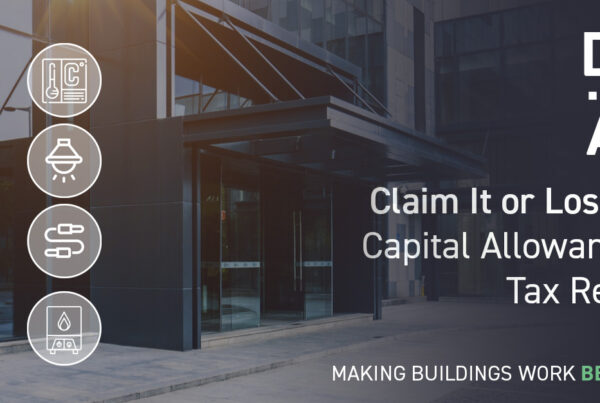
Mind the gap – the gender gap, that is.
The male-to-female ratio in facilities management careers in the UK is approximately 66% to 34%, according to a survey conducted by the Institute of Workplace and Facilities Management (WIFM) in 2021. The good news is that those numbers are going in the right direction compared to the previous year’s 68% to 32% ratio.
There is a shift in the universe, however. More and more, we are seeing women who are excelling in careers and industries that men once dominated. And facilities management is no exception, as women now recognise that their skills, knowledge, and expertise are perfect for a career in FM.
As an industry, we can see that great efforts and strides are being made to create a more equitable workforce in FM, focusing on increasing gender diversity and promoting inclusivity.
Valerie Miller, Sales & Marketing Director at DMA Group, has a 23-year career in FM.
“I’m still shocked and saddened to know that there is such a wide gap in the male-to-female ratio within the facilities management industry. I still don’t know the reason for this. Is it because of a lack of awareness? Women may not be aware of the opportunities the industry has available or may not have been exposed to the industry through education or career guidance.
“I do know that FM has historically been a male-dominated industry and that gender stereotyping could likely be one of the main reasons why women aren’t pursuing careers in our industry. But the stereotyping can also take a different spin – do organisations feel that as women tend to be the ones with caring responsibilities, they won’t be able to put in the long and arduous hours that a career in FM can sometimes involve?
“And then there’s the chicken and the egg dilemma – are women discouraged from entering facilities management if they don’t see many other women in leadership or technical positions within the industry?
“Ultimately, the significant issues at the forefront of the industry are to resolve how we attract more women into the profession and how to help them reach their full potential. There can be a win-win outcome here as an industry, we face a shortage of skilled workers, and a gender-balanced workforce creates a more diverse and equitable workplace.“
65% of engineering employers say a shortage of female engineers is a threat to their business, and companies are 15% more likely to perform better if they are gender diverse – Building Engineering Services Association (BESA) Director of Training Helen Yeulet
BESA is continuing to support the Women in Engineering Society (WES) initiative to increase the proportion of female engineers in the UK to 30% by 2030.
Despite advances in gender equality, women still assume most of the burden of unpaid caring work. Only 6% of women in a relationship say their partner manages the domestic work, according to 2021 research by YouGov. With women caring for children and often elderly relatives, flexibility is critical to making the FM space more accessible for women.
From there, to here
Valerie ‘fell’ into her 23-year career in facilities management when it started as what she thought was a temporary job as a helpdesk operator for a large management consultancy firm.
“FM is one of these industries you fall into; you don’t leave school at 18 thinking I want a career in Facilities Management! I fell into the industry in 2000. I was looking for temporary work and was offered a role as a helpdesk operator taking facilities management calls for a large management consultancy firm in the city. I had yet to learn about FM. I wanted a job in marketing as it was a lot more exciting. It took me only a short time to realise that I enjoyed the FM sector. And, as a bonus, the pay was good, and I was good at it!
“I worked hard and eventually progressed from helpdesk operator to Group Sales & Marketing Director (yes, I got there in the end!), sitting on the management board of a £170m FM business. Sadly, I was pretty lonely with only one other female, making our male-to-female ratio seven to two!”
Valerie attributes her successes within the industry to three catalysts: hard work and self-belief, the belief in her ability from others, and working with inspiring women.
“Working with two inspirational women has had the most profound impact on my career. Without their guidance, I wouldn’t have had the self-belief to reach my full potential. Each at different but significant points in my career, they showed me how to be professional, organised, confident, dress for business and reach for success. I’m sure this is true for many people, men, and women alike, but having someone who inspires you is a game changer.
“In FM, I’m sure many people will have a similar story to mine, starting at the bottom and working their way up – you rarely hear of recruits coming into the profession with a degree in FM. But, many do obtain a professional qualification such as a degree or postgraduate diploma to upskill and progress.”
How do we get more women into FM? Education is key!
Raising awareness in schools of the opportunities a career in facilities management can offer is an effective way to encourage more young people, including women, to consider a career in the industry. Career fairs, guest speakers, work experience and internships, curriculum integration and industry partnerships can all be successful methods to showcase the different career paths available within facilities management.
“First and foremost, there needs to be more understanding of the facilities management profession in schools and colleges, so better awareness is critical here. Students need to know that facilities management is viable, offering a varied and rewarding career. So, whose job is it to educate? Is it the schools, government, DfE, or the FM companies wanting to attract the best talent? It’s everyone’s job, but as an industry, we must do more with our local schools and colleges through collaboration and partnerships. DMA collaborate with local colleges and schools, offering career talks, toolbox talks and work experience.
“So here lies the first challenge. How do we get female (and male) school leavers to consider a career in FM?
“When I refer to FM, I’m talking about management, administration, and engineering roles, each being different paths. But engineering apprenticeships can be an excellent path for school leavers, which involves studying and practical on-the-job training. Signing up is easy (just maths and English skills required), and they get paid whilst learning a trade. Win-win, right? So why do we keep going in this circle? Why is there still such a skills gap and a significant lack of women?
“While widely available apprenticeships tend to attract more men than women. I can’t help but continually question why this is. Is it because the industry has focused on apprenticeships in engineering rather than facilities management? Facilities management offers a broader career path in contract management, supply chain management, data, and analytics (including AI), customer service, procurement, sales and marketing. Don’t get me wrong, I would love to attract women into engineering, but there really is so much more to offer as an industry.
“Here’s what I think. Women within the industry are responsible for acting and engaging with schools and colleges to show our next generation of facilities managers, buyers, and sales managers that women can achieve rewarding and successful careers in FM.”
How do women achieve their potential?
“Once we can overcome the hurdle of attracting more women into the industry, employers need to nurture that accomplishment and do everything they can to help and encourage them to reach their full potential. Statistically, we know women’s careers are more disrupted than their counterparts – childbirth, family caregiving, mum’s taxi service, and, as it’s now being brought to the forefront, menopause. However, my experience has proven that it doesn’t need to limit you from reaching your full potential.
“So again, how can employers support women in the workplace? I think the obvious quick wins are to provide equal opportunities and provide the same career paths as their male colleagues, address gender pay gaps and ensure performance-related evaluations are fair and unbiased. Fostering a supportive workplace culture that promotes equality, addresses discrimination, and provides a work-life balance is also crucial. Mentorship programmes that match women with senior leaders who can provide guidance, advice and support can be instrumental in developing a successful career path. I drew great strength from the support of my line managers (who have been predominantly male) and their belief that I could do it all, have a successful career and have a family.
“I recently mentored a young lady going off maternity leave; she has great potential but was so worried she couldn’t cope with her job and her new family when she returned. Through several coaching sessions, we put aside all her worries. She is now back at work receiving proper support and encouragement, which gave her the confidence to apply and secure a promotion.”
How can women position themselves for senior leadership positions in FM?
Grant Thorton International Ltd.’s 2022 Women in Business report shows that the number of women in senior management positions in UK businesses is 32%, the highest level since the report’s records began in 2004. Additionally, 73% of global respondents expect that new working practices accelerated by the pandemic will continue to benefit women’s career trajectories long-term (79% UK). This is great news to read, and highly encouraging to see the upward trend. But how do we keep this momentum and apply it to the facilities management industry?
“In a male-dominated industry such as FM, it is unsurprising that men continue to outnumber women in senior positions. As a woman, I am unconfirmable with this fact, and I strenuously believe in the right person for the job, irrespective of gender. As an employer, I want to employ the right candidate, and I would never make my selection based on gender. However, when recruiting for sales and marketing roles, most applicants applying are male. Why is this? The obvious answer is that there are, undeniably, more males than females working in FM. But is it more profound than this? Is it down to having confidence and belief in oneself in applying for and securing that senior position? The challenge lies with women believing they can be successful when applying for these senior roles.
“Role models and coaching is so crucial to women, to see what others have achieved can be so powerful. Building out and developing a solid network of peers, mentors, and sponsors worked for me; my role models showed me I could achieve success despite the gender inequity and despite taking time out to have my children.”
Summary takeaway
Employers are responsible for encouraging and supporting women in the workplace, regardless of industry. In doing so, they will create a diverse, inclusive, and prosperous environment. There’s a lot that employers can do right now to make changes and attract and retain the top talent that’s out there.
Top of form
“There’s a lot that employers can do to make a simple and substantial impact, such as engaging with local schools and colleges to promote a career in FM through career talks and work placements. These can be delivered by successful women who inspire the next generation to consider a career in FM.
“Attracting school leavers through apprenticeship programmes is a great way to encourage more young people into engineering and wider FM career paths. It’s also a great way to develop a pool of talent who can progress to those senior positions in the future.
“Offering women flexible working arrangements in the workplace should be an essential strategy for employers in supporting women and promoting gender equality. Things such as maternity (and paternity) benefits, parental leave, and menopause support will all have a positive impact on job satisfaction, productivity, and above all, retention.
“Management development programs are a fantastic way to recognise talented and hard-working women (and men) who have the potential to reach senior leadership roles. By investing in the development of their employees, organisations can build engaged and committed workforces, which in turn will contribute to their success.
“Creating a culture of self-brief and encouragement among peers and managers is another effective way to promote development. Fostering a positive and supportive workplace culture will open the channels of communication and collaboration and empower women to take responsibility for their learning and development.
“Senior leaders can also offer to coach and mentor those that need it, maybe through a challenging part of their life or if they need the inspiration to move to the next level of their career.
If I could put one big ask out into the universe
“If I could put one big ask out into the universe, it would tell businesses that if you have inspiring women in your organisation, let them motivate others and encourage them to work with other women to help them on their development journey to reaching their career aspirations.
“Women in FM… why not? FM is such a broad and complex industry; it just makes sense that its talent is just as diverse. But fundamentally, gender has nothing to do with insight, talent, or skills… in any profession. We need to stop justifying why we’re here in the first place.”
Valerie Miller is DMA Group’s Sales & Marketing Director with over 20 years of experience in the FM industry. Her expertise has enabled her to work with customers to define and build solutions that have transformed their service experience, efficiency, and performance outcomes.



